Building the Resilience of Persons with Disabilities through Farmer Managed Natural Regeneration
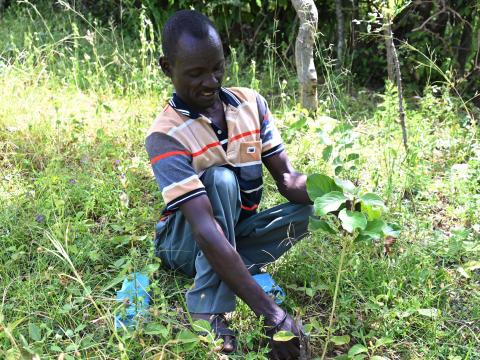
By Hellen Owuor, Communications Officer (CRIFSUP Project), World Vision Kenya
The name Samson Atodonyang’ is renowned to the community in Senetwo location, situated in Chepareria ward, West Pokot County, Kenya.
Samson, 47, is a role model to many who feel challenged by the fact that he is abled differently, yet he has done so much in his homestead and in the community at large.
Being a climate action advocate, his passion, resilience and love for conserving the environment is unmatched.
At the tender age of seven, Samson suffered from Poliomyelitis (polio) which led to disability in the legs as his lower limbs became weak. He uses his arms to aid in mobility.
Despite this challenge, Samson efficiently serves in various leadership positions in Senetwo, demonstrating the true definition of the adage “disability is not inability”.
One out of his many leadership roles is being the chairperson of farmers selected by World Vision in Senetwo location, with the aim of building their resilience to drought and other environmental challenges.
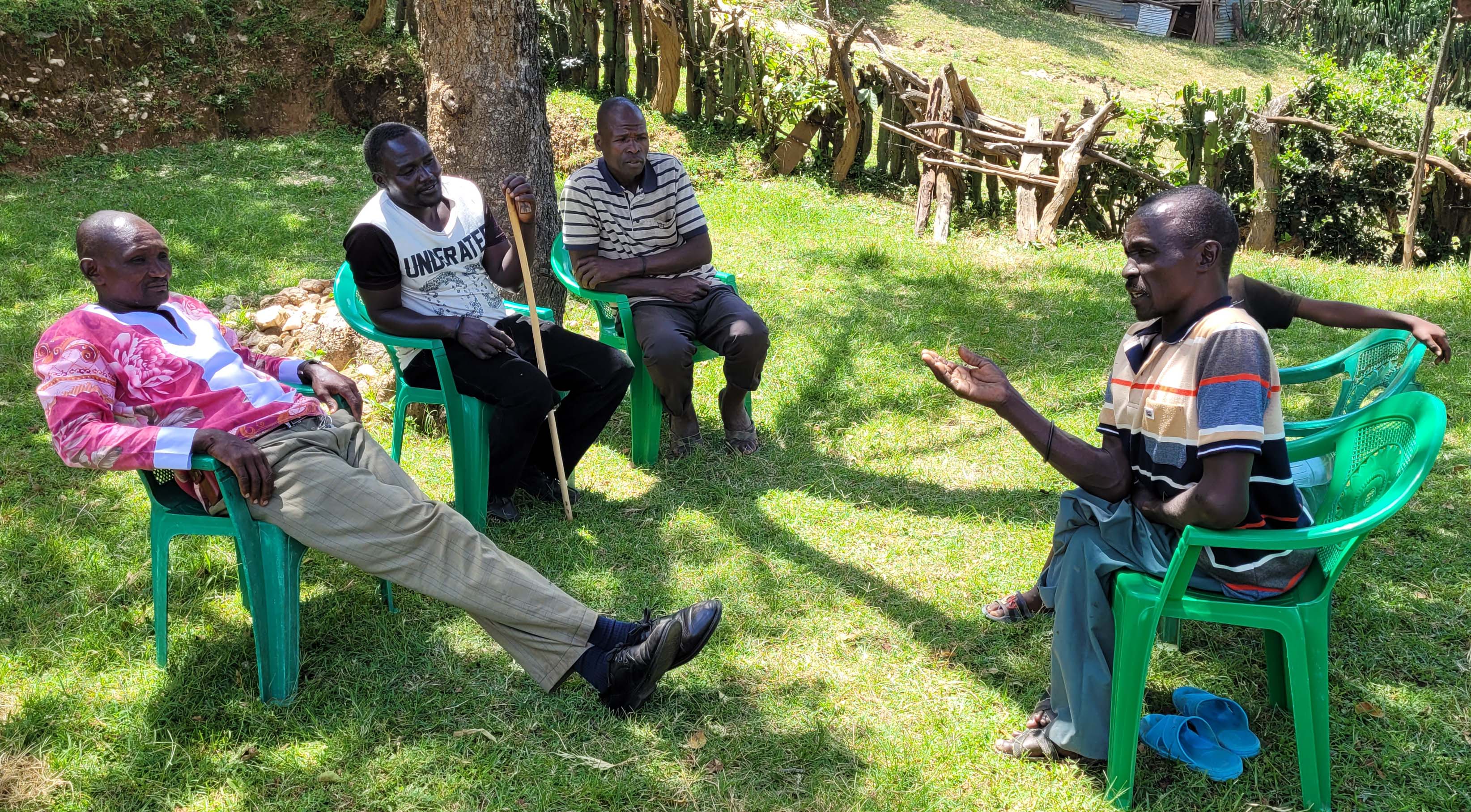
Senetwo location is one of the areas in West Pokot County that is prone to drought due to the impacts of climate change. The semi-arid county whose inhabitants are majorly agro-pastoralists, receives between 550mm to 850mm of annual rainfall coupled up with irregular rainfall patterns.
This is very little rainfall, barely enough to sustain crop yield production that meets the area’s agricultural demand. As a result, it has gravely affected the livelihoods of these communities.
In such adverse climatic conditions, Persons with Disabilities (PWDs) are among the most vulnerable groups.
"It is challenging to be a person with disability especially during the dry season because you constantly have to rely on other people to help you when searching for water or pasture for your animals which becomes costly. This is something that you could have otherwise done on your own if not for the disability,” Samson says.
Samson is however in a better position to cope with such environmental challenges. In May 2022, Samson among 209 other smallholder farmers and pastoralists in Chepareria, West Pokot County, were trained on the Farmer Managed Natural Regeneration (FMNR) approach through World Vision’s Central Rift Farmer Managed Natural Regeneration Scale-Up Project (CRIFSUP). The approach will enable these communities to rehabilitate degraded land and improve their livelihoods.
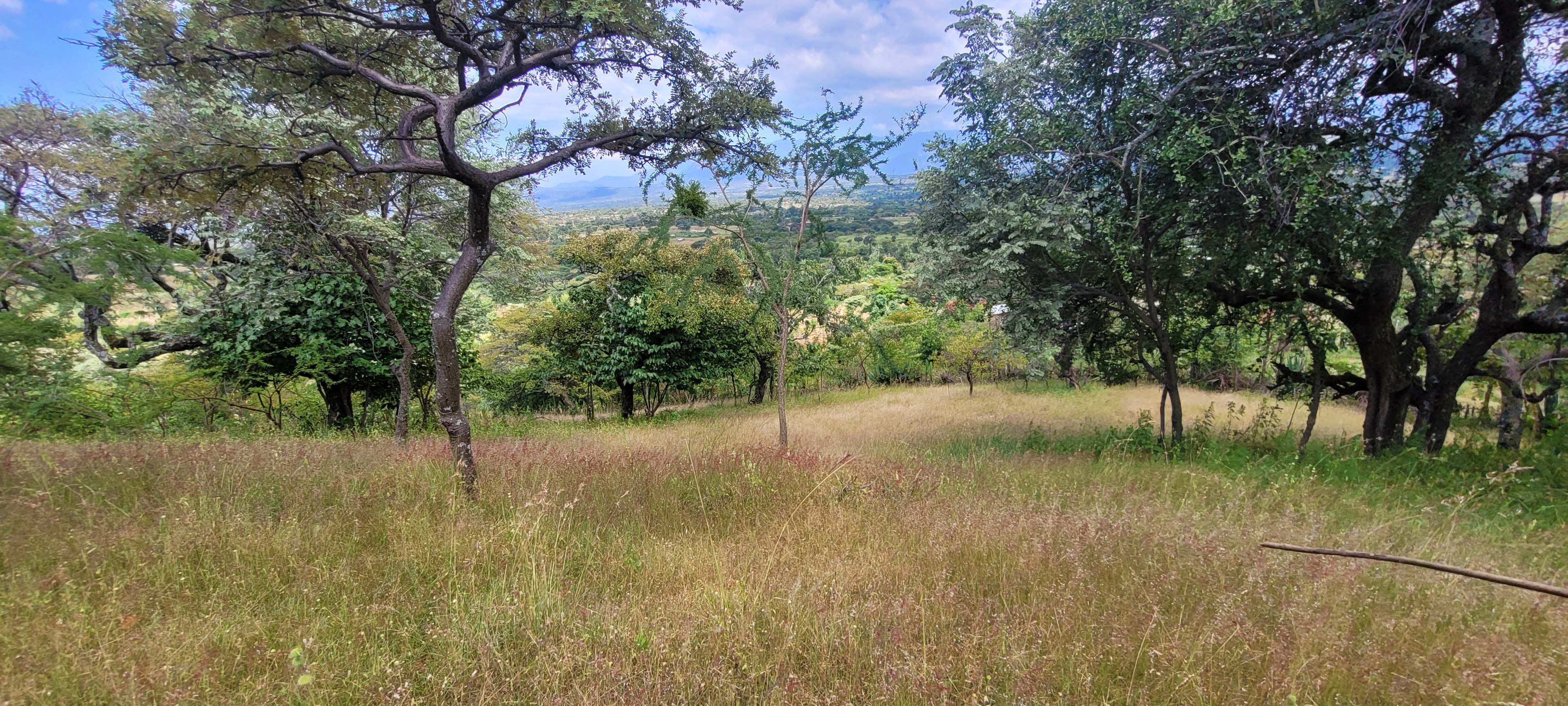
After the training on FMNR, Samson immediately enclosed three more acres of his farmland to encourage natural regeneration of indigenous species. He was upbeat about implementing the approach as he was already familiar with some aspects of FMNR.
“Thanks to World Vision’s FMNR training, I am now aware of the things I was doing wrong. I have learnt the proper pruning techniques, the importance of using the pruned branches as organic manure instead of burning them as we used to and the importance of protecting young regenerating stumps from being damaged by livestock. In addition to the increased grass cover, we are now reaping greater benefits as a result of implementing the correct practice,” Samson states.
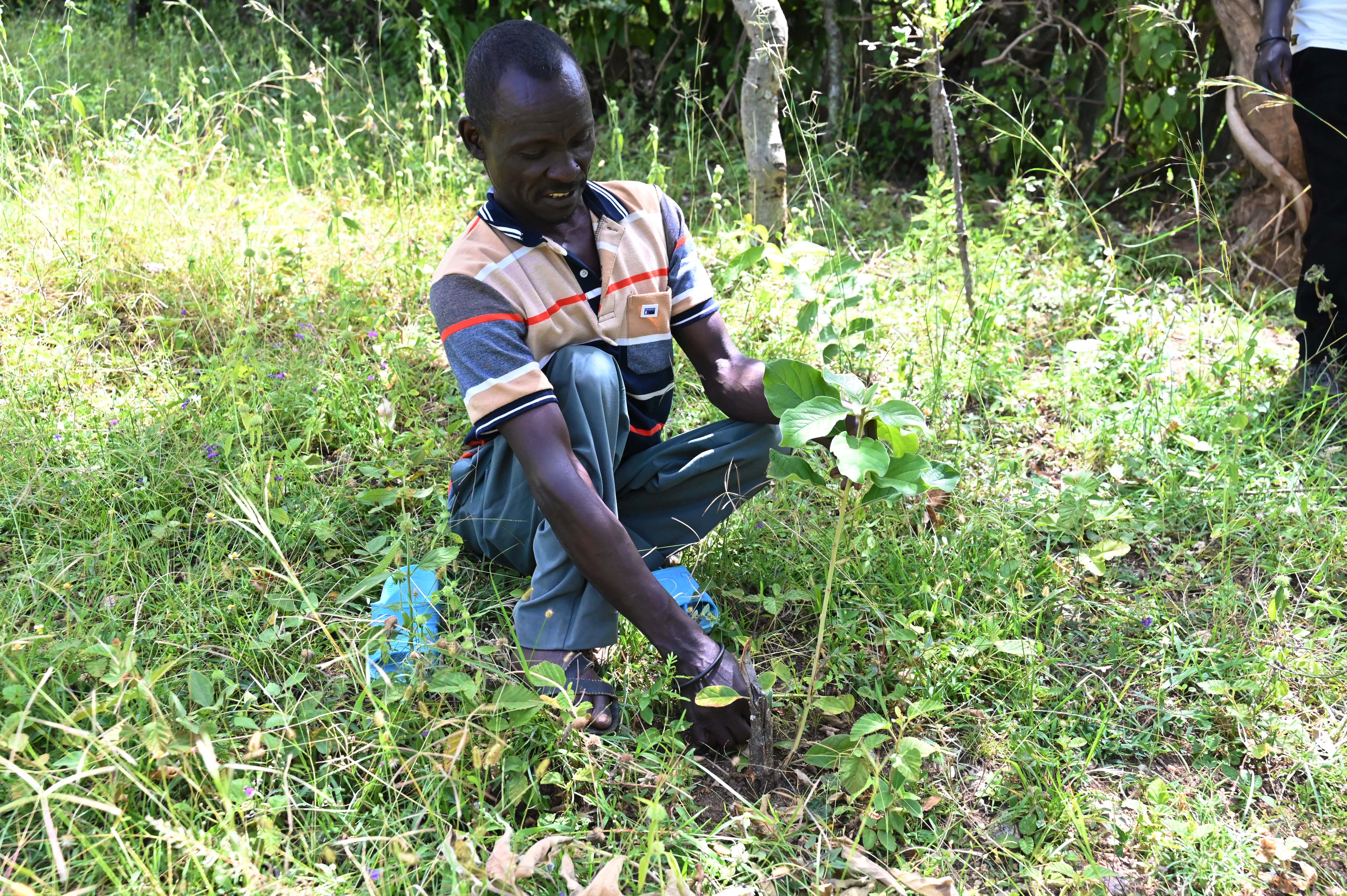
Through income gained from selling their farm produce, Samson and his wife Pauline have been able to effortlessly support and educate their seven children, three of whom are in college. They have embraced working together to attain the maximum benefits from FMNR to sustain their livelihood.
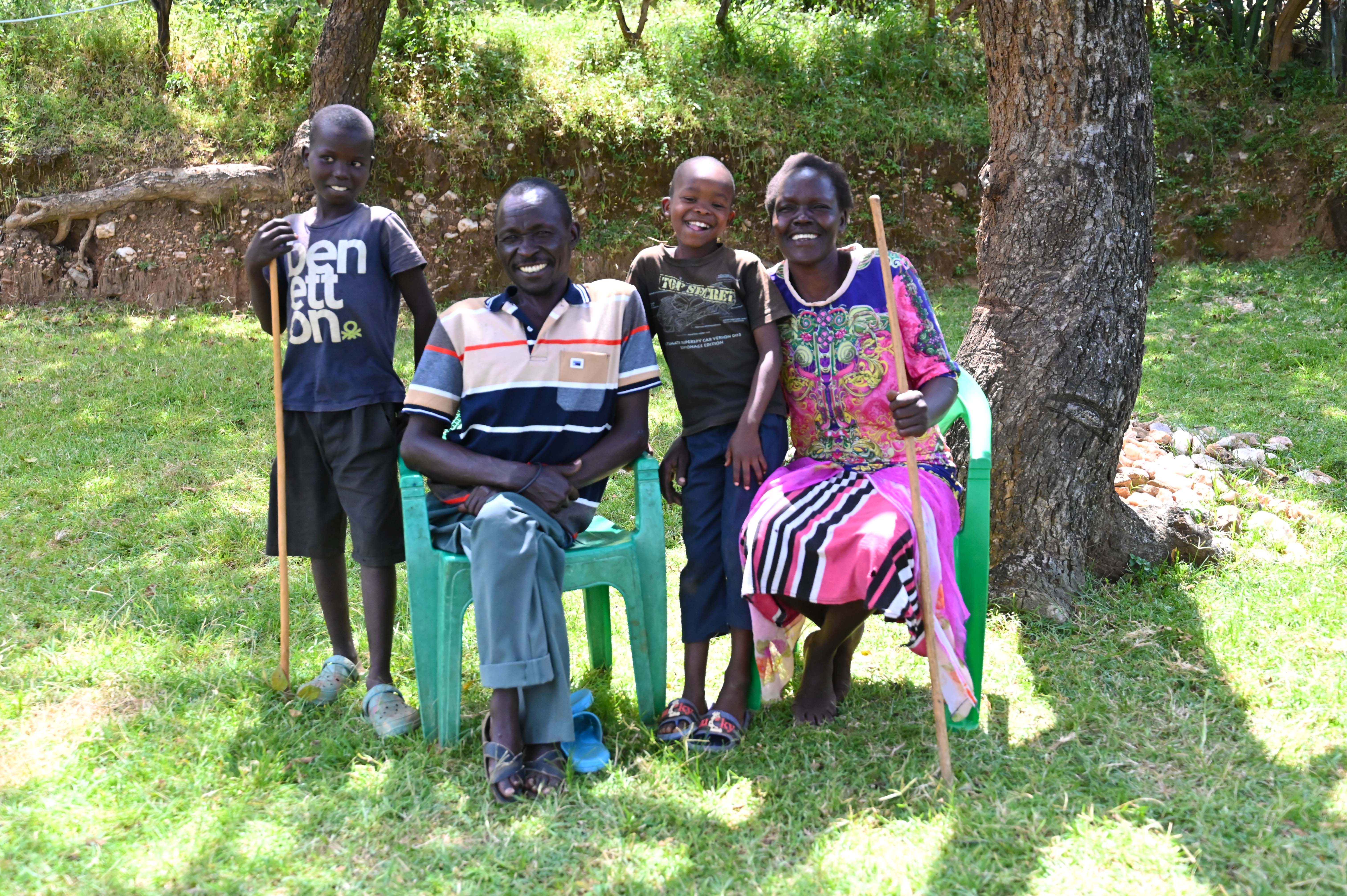
“I enjoy sharing duties with my husband in the farm. It has improved our relationship. We achieve better results when we combine our knowledge, strengths and unique skills. He taught me about FMNR and now I assist in managing the trees in instances that he can’t due to his disability,” Pauline mentions.
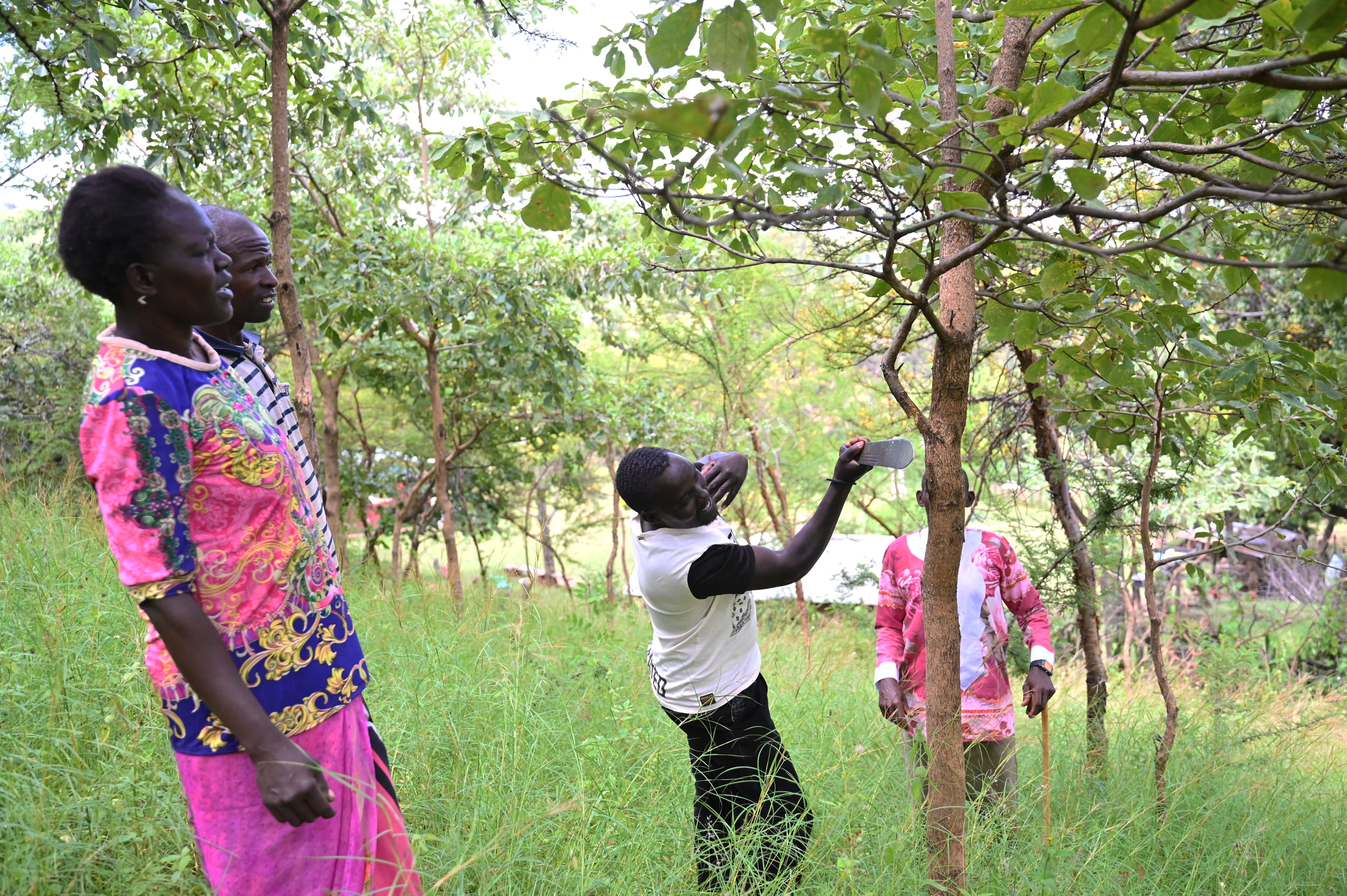
Having trees that provide firewood a stone’s throw away from the house has enabled Pauline to focus on other income-generating activities such as tending to her kitchen garden and poultry farming. Their children get more time to study instead of searching for firewood.
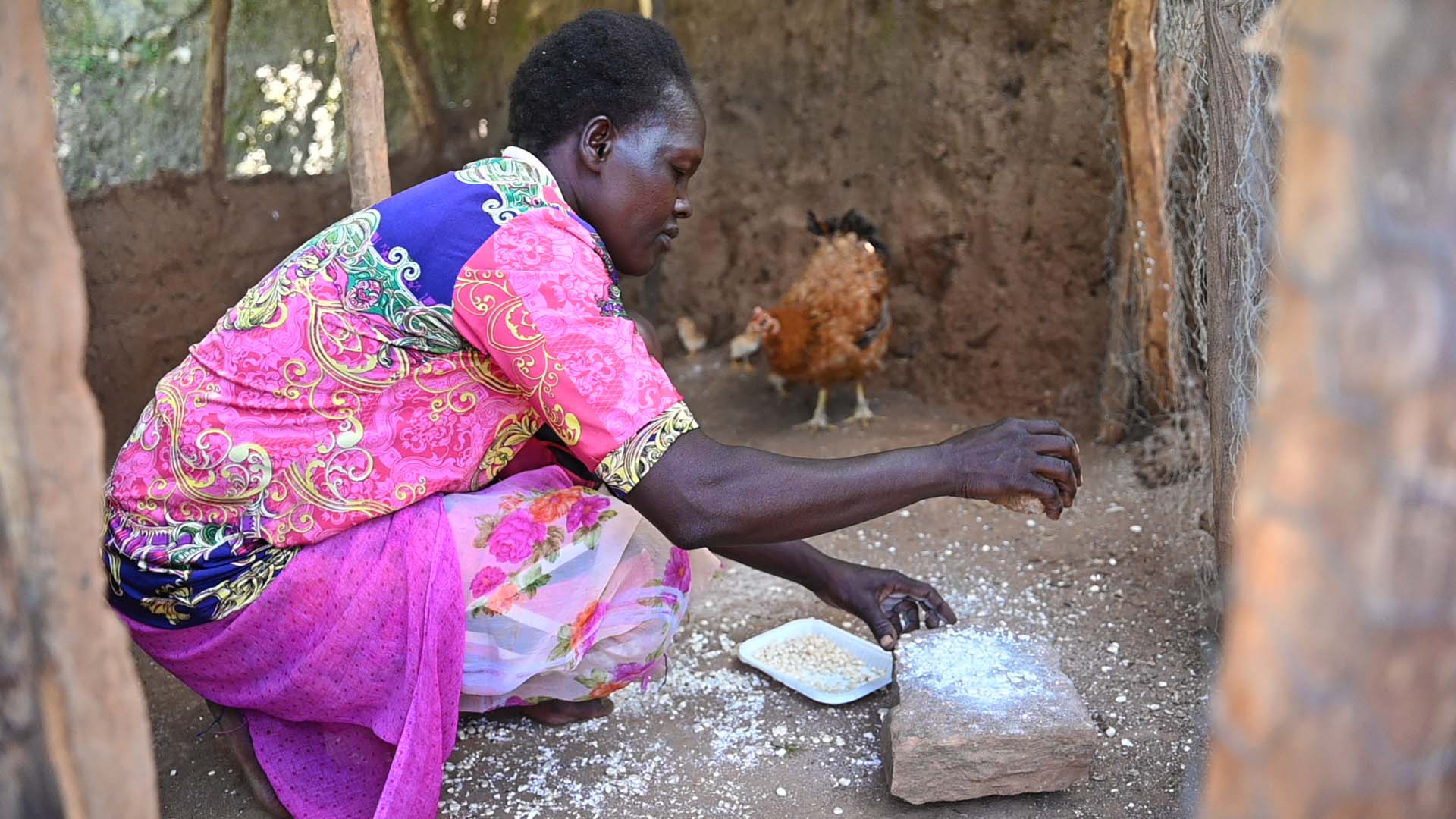
“I used to spend at least five hours when fetching firewood but now, within 30 minutes, I can gather firewood and prepare food for my family early enough,” Pauline remarks.
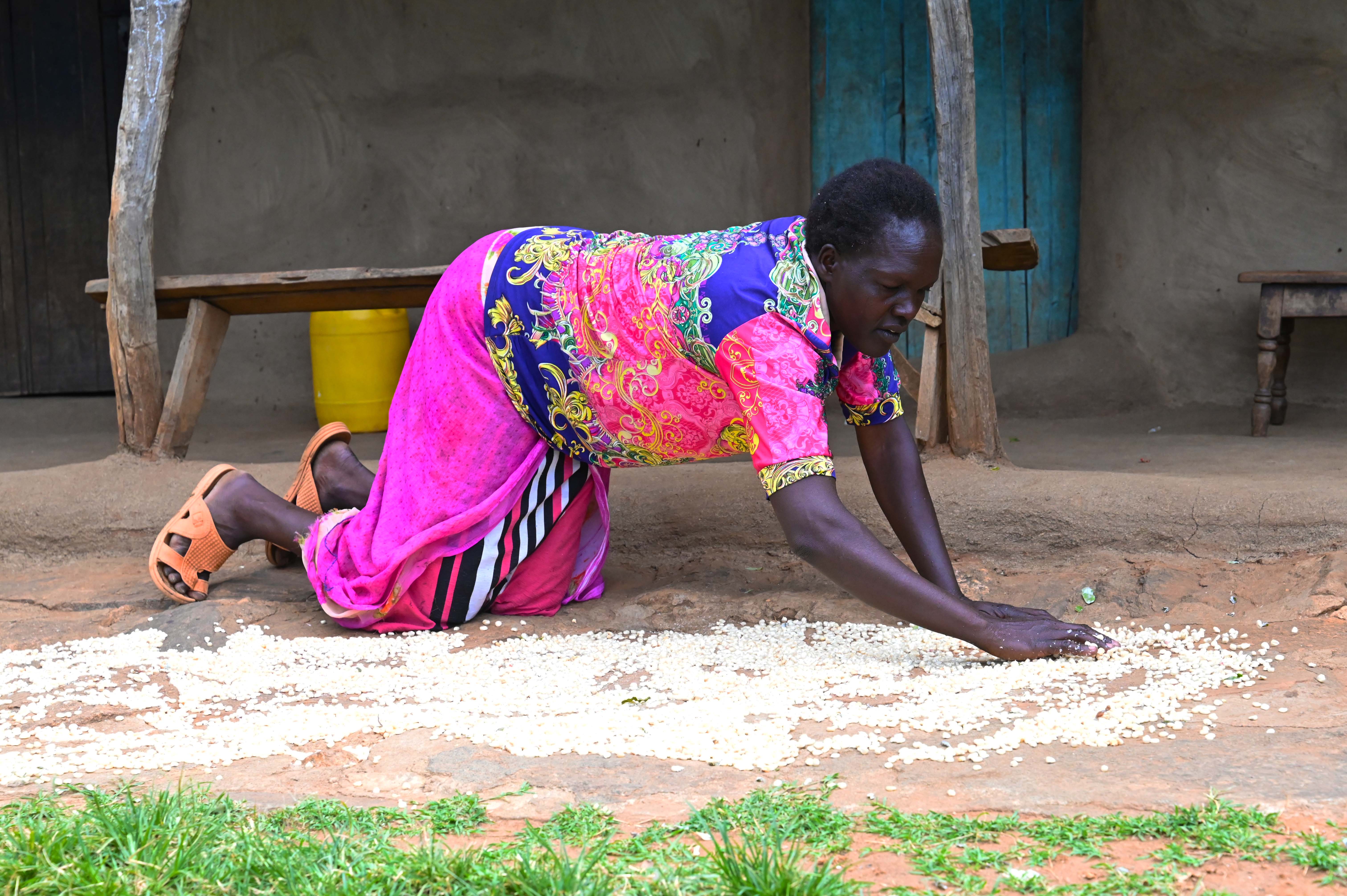
In September 2022, Samson and Pauline sold firewood worth 4,500 Kenyan shillings (USD 37.07). They used the money to finance the academic needs for their school-going children.
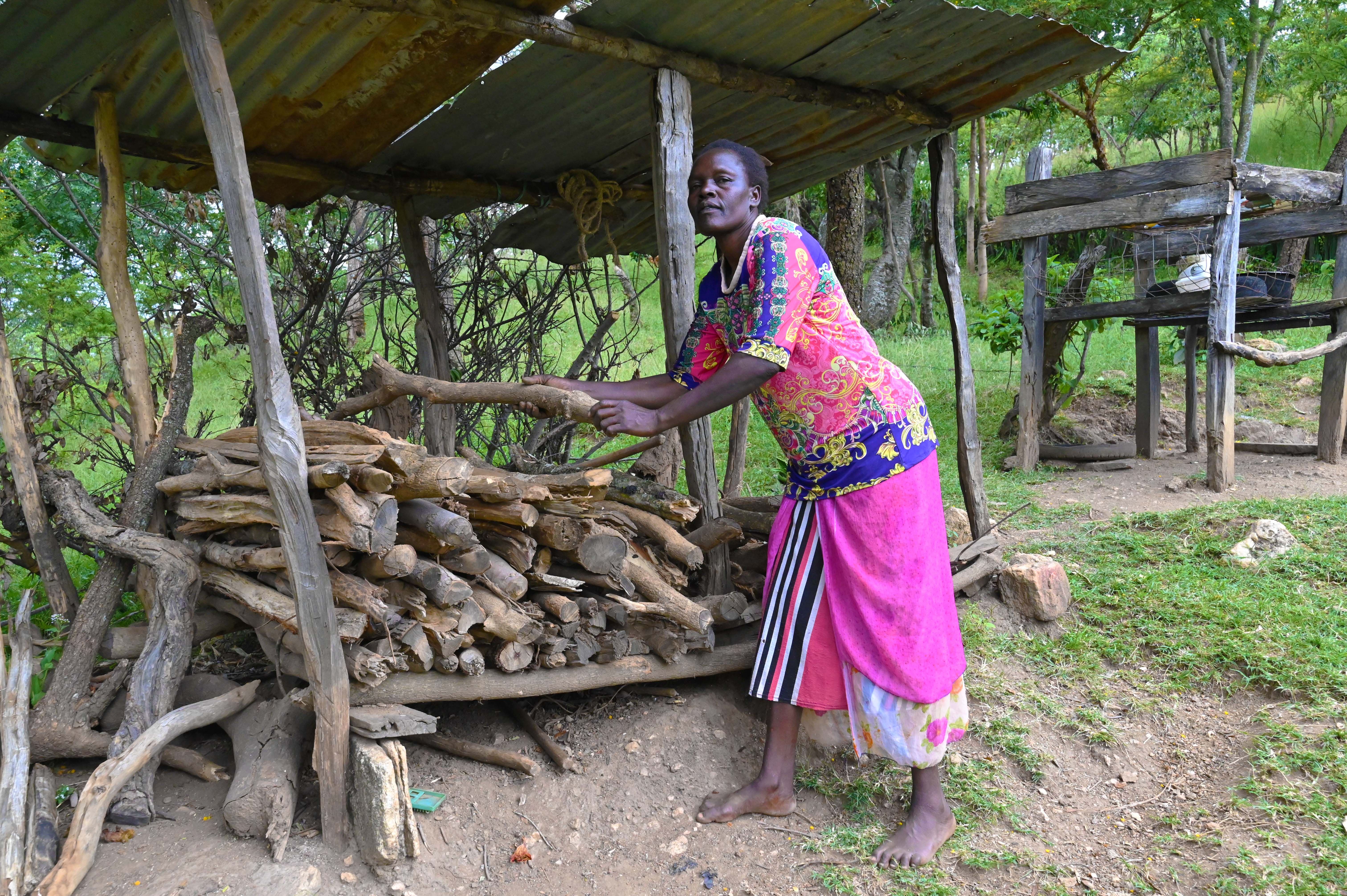
Pauline says that as parents, they now get spare time to spend with their children that nurtures their bond. Additionally, they use indigenous tree extracts as herbal medicine to cure the children from coughs, flu and stomach aches.
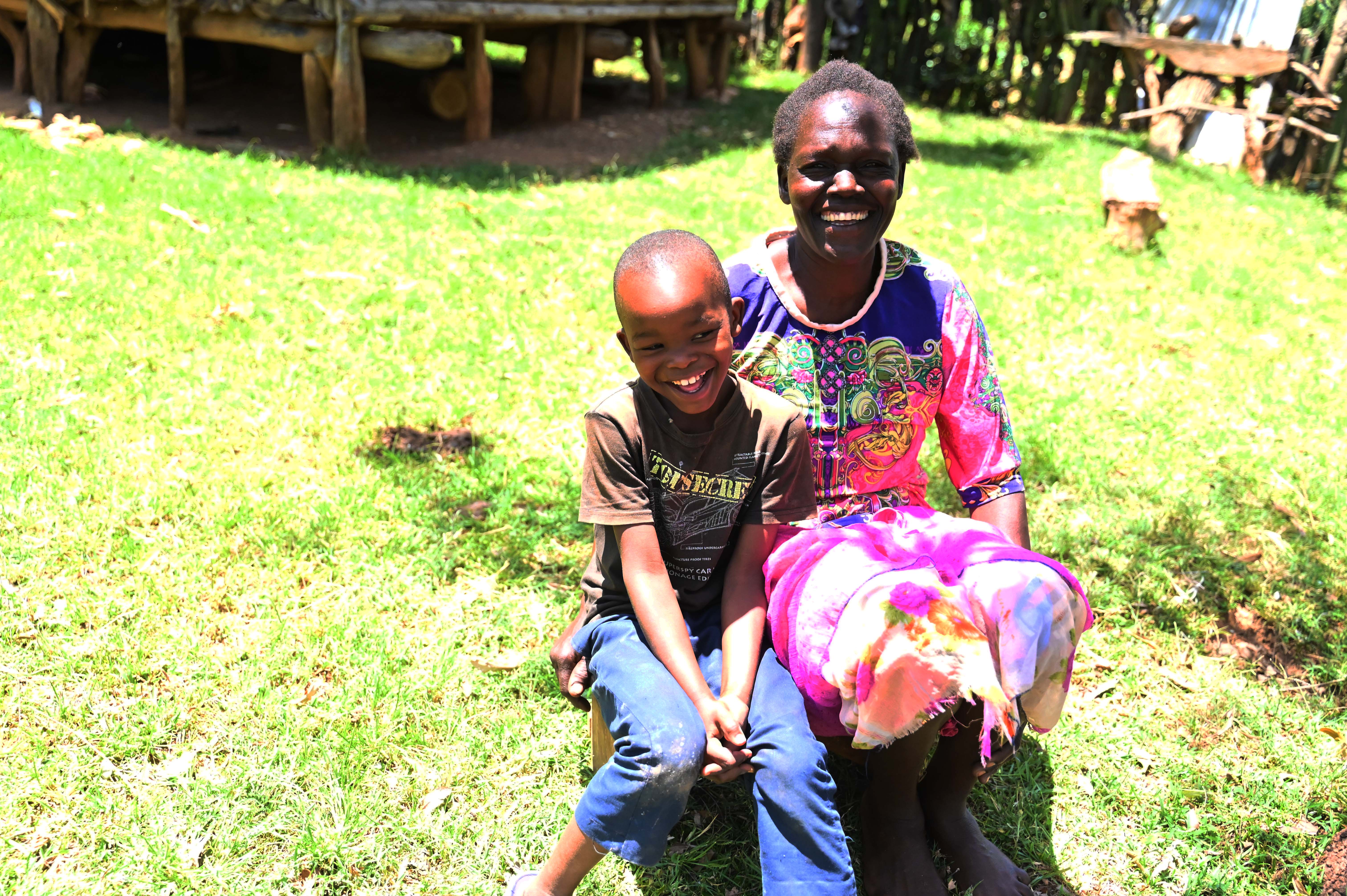
“Growing up, there were lots of trees, wild food and fruits in abundance. There was enough for us and our livestock to eat. If only we can restore that...our lives would change,” Samson hopes.
“I encourage people with disability [who have land, however small] to adopt FMNR because it offers a sustainable solution and will cater for most of their needs. They should not dwell on their disability but rather focus on their goal,” he adds.
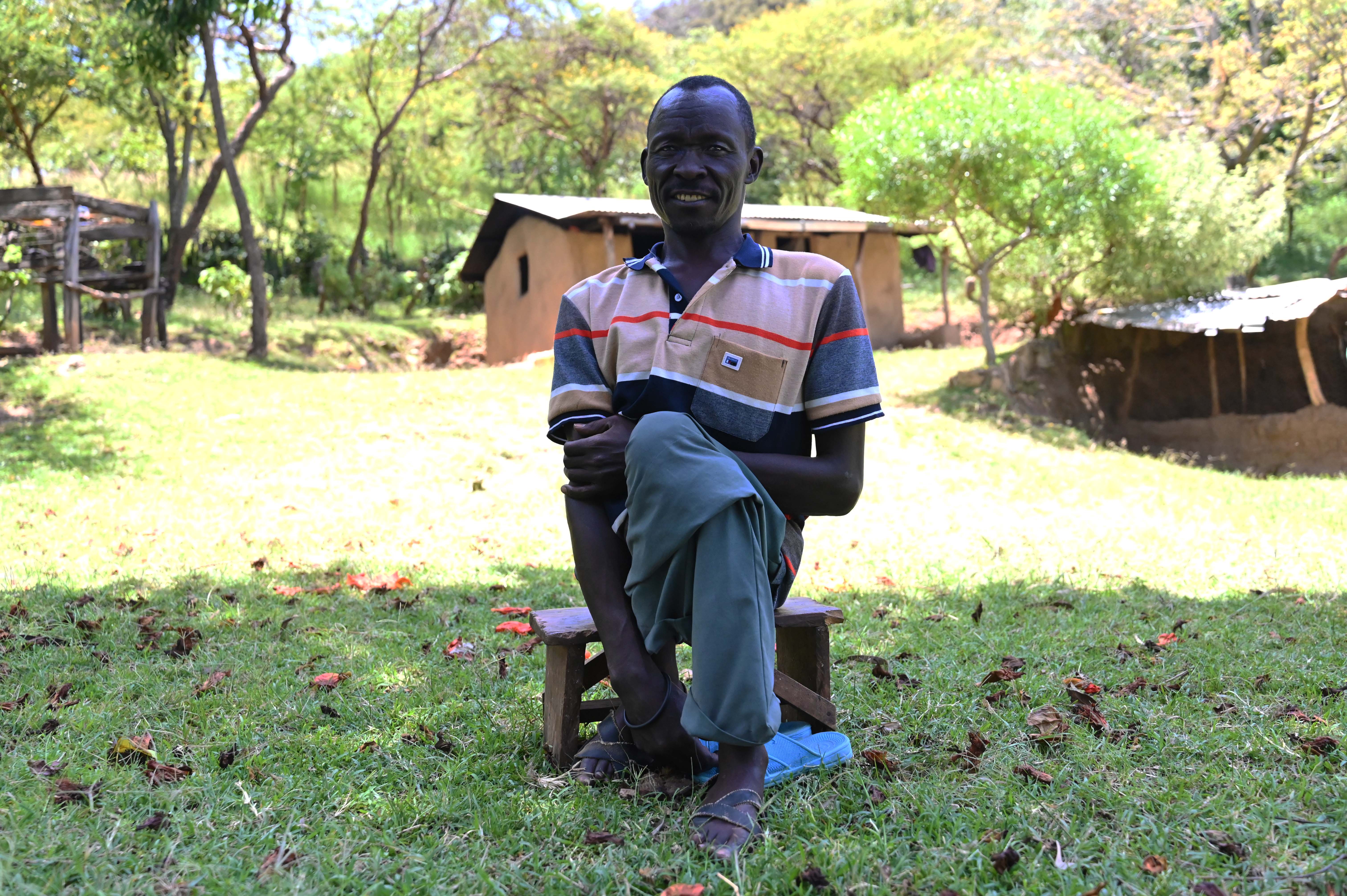
“I appreciate the follow-up visits conducted by World Vision staff. Their encouragement and guidance gives us hope and the morale to keep striving for the best.” Samson says.
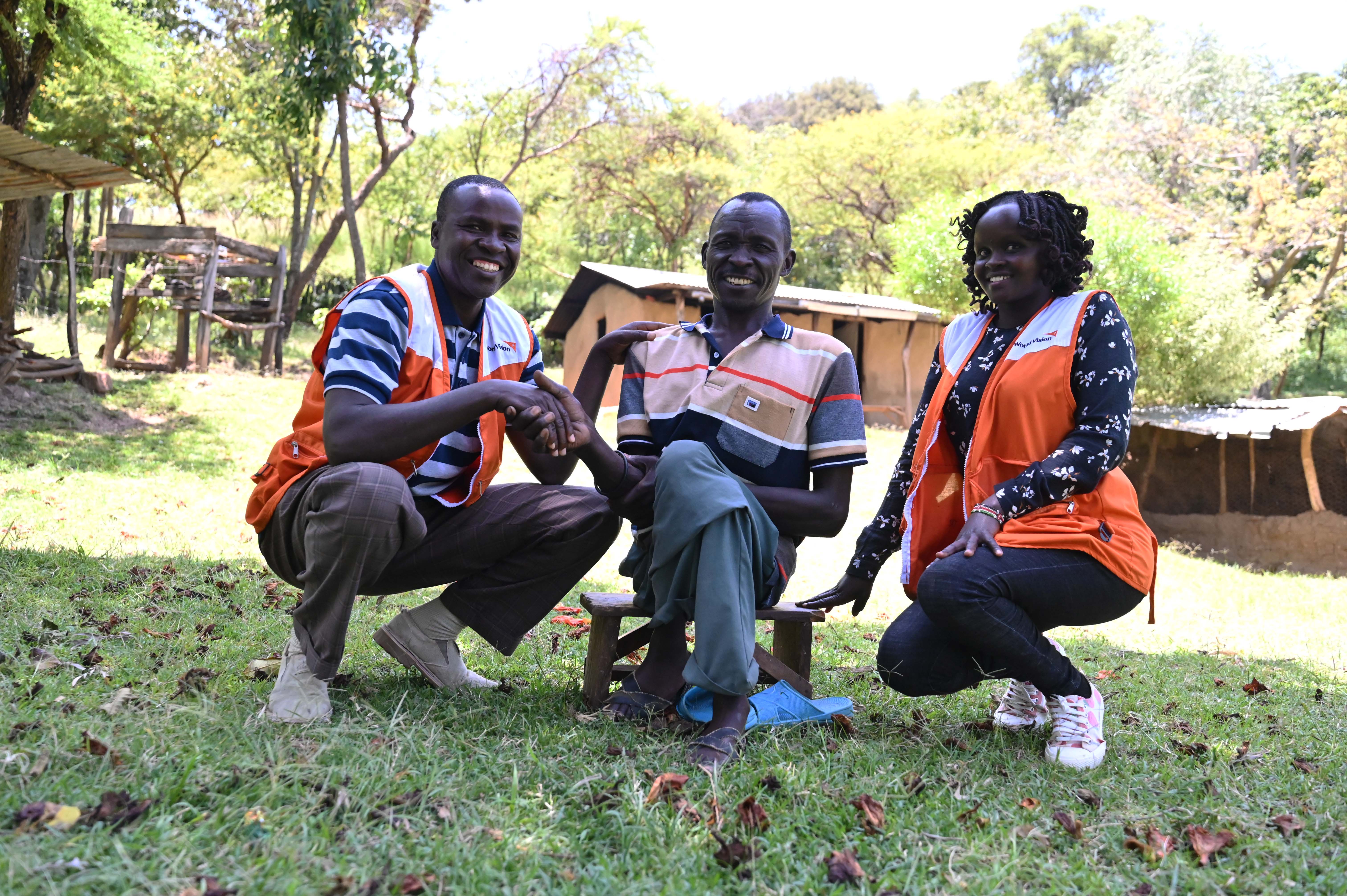
Samson looks forward to harvesting his regenerated Terminalia brownii trees, locally known as Koloswo, upon maturity and selling them as timber.
“Samson is one among many others who are experiencing the social, economic and environmental benefits of implementing FMNR, which has contributed to the holistic well-being of their families and children,” says Festus Chirchir, World Vision's CRIFSUP Project Manager in Kenya.
World Vision’s CRIFSUP project, which is in its second phase of implementation, seeks to ensure that it takes into consideration the participation of women, men, boys, girls and Persons with Disabilities (PWDs). As such, the project has identified and selected 1,203 project participants (smallholder farmers and pastoralists) across Baringo, Elgeyo Marakwet, Nakuru and West Pokot Counties. Of this number, 5.2% accounts for PWDs. The project is also encouraging joint participation of men and women in FMNR activities and decision-making at the household level to enable women’s voices count on matters pertaining income generation, family welfare and utilisation of household resources.
“CRIFSUP is promoting gender equitable relations in communities we work in. Considering that we are in a patriarchal society, this will develop the ability of women to equally influence decisions in their homes as men do. When husbands and wives work together, families tend to realise more gains,” states Festus.